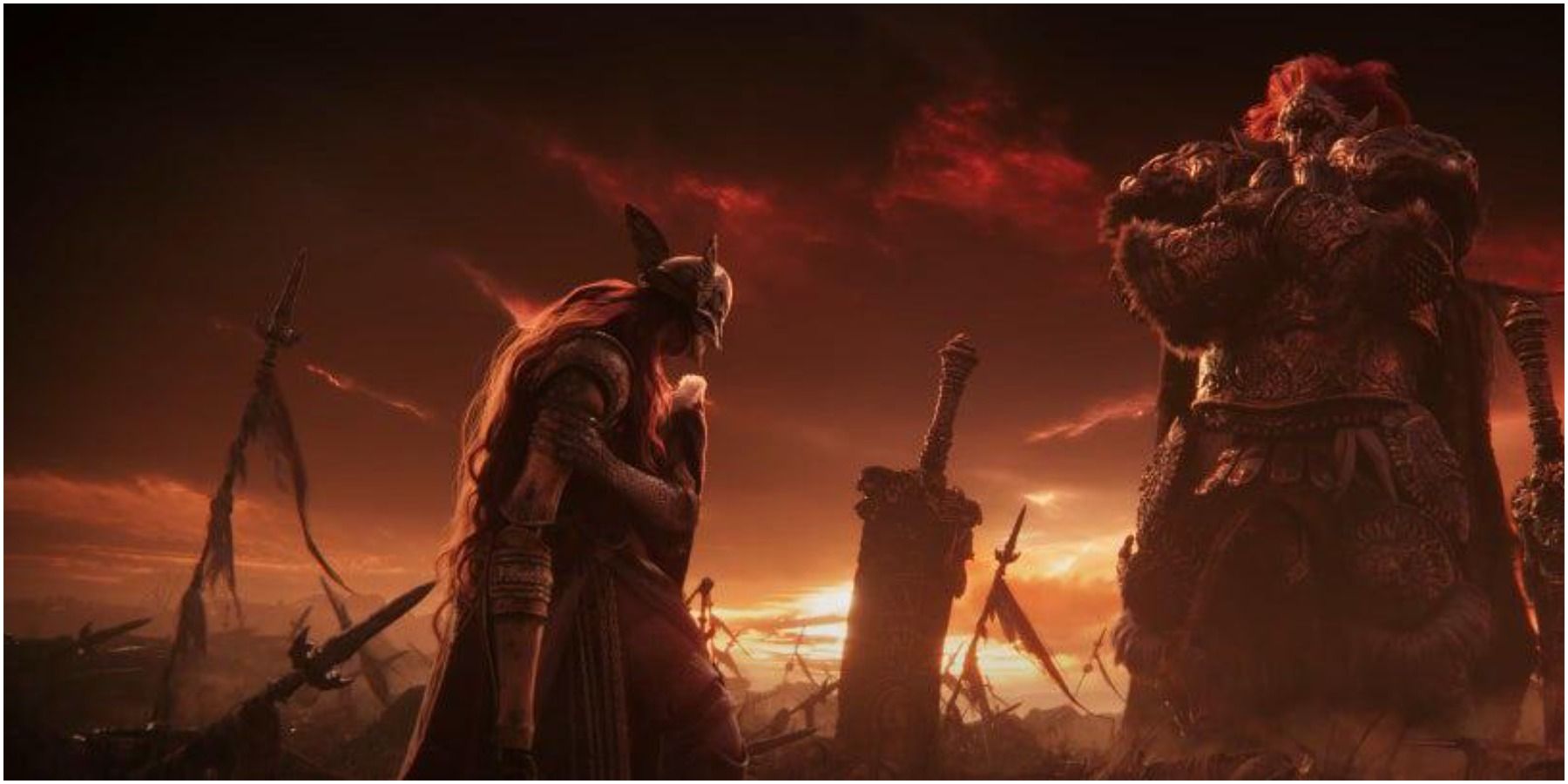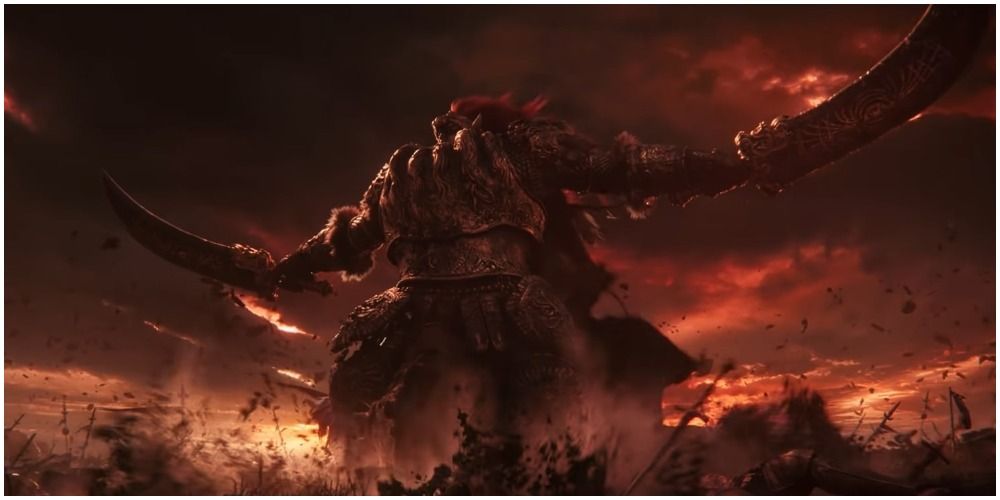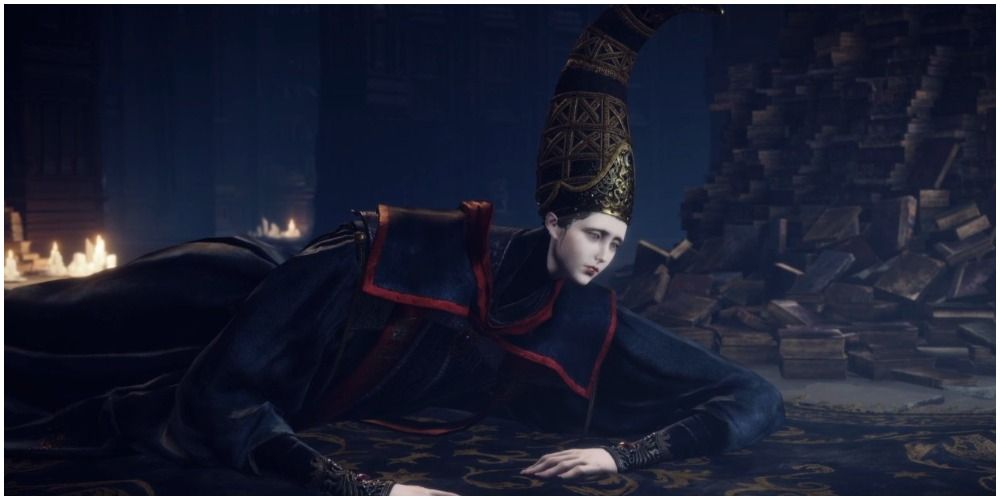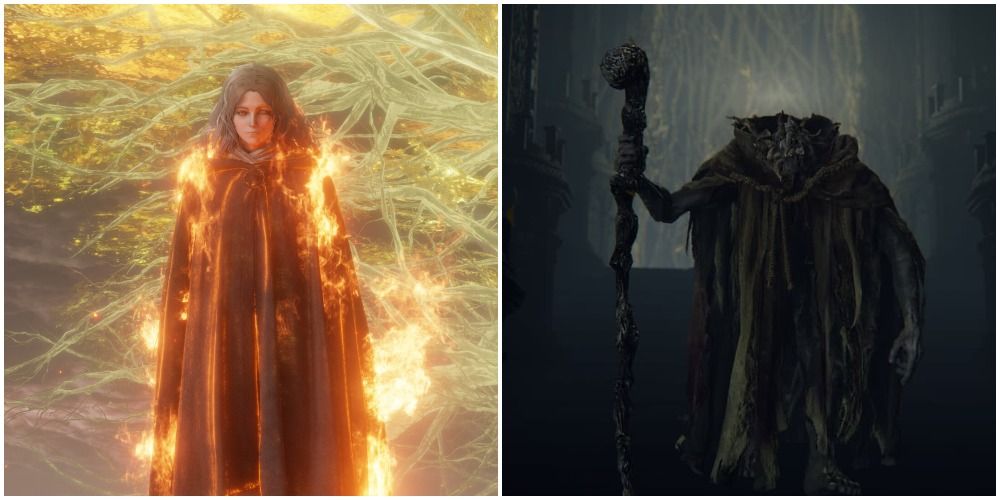Elden Ring is a game full of tragedy, from fallen demigods to death around every corner. Elden Ring players get betrayed many times by various NPCs and watches many others perish. The game has a lot of dualities with imagery between silver and gold and twins, like Mohg and Morgott and Miquella and Malenia. It does not end there, as many items are collected in two halves.
Last but not least, there is a lot of duality between men and women in the game. As with any media, the two genders are treated pretty differently. In Elden Ring, though, it becomes apparent that there is a sort of gender coding when it comes to what tragedies men face versus what tragedies women face. The men are victims of madness, of being the betrayer, of acting out of pride or greed while the women typically are victims of grief, sacrifice, and sickness.
Spoilers for Elden Ring ahead.
Masculine Tragedy In Elden Ring
Masculine coded tragedy is the most prominent in Elden Ring, as most bosses are male. Commonly, they fall to madness or some form of ambition. The most obvious of the madness tragedy is Radahn, who has gone mad from Scarlet Rot and can be seen eating the bodies of people in the desert. He is just the tip of the iceberg, though. Blaidd is another man who fell to madness because he remained loyal to Ranni but was built to push her toward a certain destiny. There is also Edgar, who goes mad for revenge for the death of his daughter to the point that he no longer recognizes anyone. Bloody Finger Hunter Yura gets possessed by Shabriri, whose entire thing is chaos and madness.
The men who face tragic ends that are not madness are instead due to various kinds of ambition. Rykard hopes to devour the gods, and sacrifices everything that he is to become one with the God-Devouring Serpent. Gideon sought to be all-knowing, and that lead him to betray the Tarnished. Godrick the Grafted is mocked for being weak and compensated for his lack of power by killing Tarnished until he meets his end by one. Mohg was without Grace and treated terribly by society, which caused him to seek his own dynasty, study blood sorcery, kidnap and brainwash the demigod Miquella, and ultimately fail and die to the Tarnished for these actions. Then there is poor Morgott, who remained loyal to those who despised him and died protecting them.
Feminine Tragedy In Elden Ring
Feminine coded tragedy is about sacrifice, grief, and being a victim of injustice. While there are fewer female characters in Elden Ring, there are many examples of this. When Radagon left Rennala, she was so broken-hearted that she is far from the woman she once was. Melina willingly sacrifices herself to fire in order to help the player meet their goal of becoming Elden Lord. Fia either gets killed by D's brother or sacrifices herself to bear a child with Godwyn. After the player kills Rykard, Tanith becomes grief-stricken and eats his flesh in an attempt to revive him.
There is also Rya, whose personal quest reveals information that makes her want to die. Latenna has the fate of being the sole survivor of the genocide of her village. Millicent and Malenia are victims of the Scarlet Rot sickness. Ranni is yet another woman of sacrifice, as she destroys her own body and attaches her soul to a doll so that she is not bound by her destiny. Irina is also murdered during her quest.
Why This Gender Coding Exists
Elden Ring is a game inspired by mythology and fantasy, and those stories also have gender-coded tragedies. It stems all the way back to Ancient Greece and Shakespeare. The genders also often serve as plot devices for each other's tragedies. Ranni was the plot device that drove Blaidd to madness. Irina was the plot device that drove Edgar on a mad killing spree. Radagon was the plot device for Rennala's grief. Rykard is the plot device that makes Tanith go mad and try to eat his corpse.
There is something to be loved and hated by this pattern. On one hand, Elden Ring using old patterns makes sense because players are used to these story and character tropes. It is a storytelling comfort zone, and that may be required when a game thrives on difficulty and lore that is hard to follow. On the other hand, the predictability is a little tiresome and contains uncomfortable truths as to what gender means to the content creators. It would not have hurt the game to have more monstrous women and more delicate men.
Elden Ring is out now for PC, PS4, PS5, Xbox One, and Xbox Series X.




